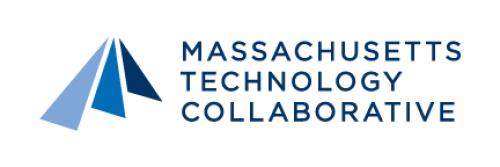LOWELL – Yesterday, the Baker-Polito Administration announced a new $2.3 million grant to Lowell-based composites manufacturer Specialty Materials, Inc., an award from the Commonwealth’s Massachusetts Manufacturing Innovation Initiative (M2I2). The award will support the expansion of Specialty’s production of its boron-based composite materials, materials widely used in aerospace, sporting goods, and industrial applications to strengthen products. The M2I2 grant will support a project that will nearly triple the size of the Specialty Material’s manufacturing capability, adding an additional 75 employees and $6 million per year of spending in Massachusetts.
Lt. Governor Karyn Polito joined Specialty Materials executives and leaders from the Center for Advanced Manufacturing at the MassTech Collaborative, the organization that manages the M2I2 program, for the announcement of the award at Specialty’s facility in Lowell. As part of today’s visit, the Lt. Governor joined state and local officials to tour the company’s manufacturing floor, to highlight boron-based materials used in high-tech aerospace platforms including the F-15 fighter, the Blackhawk Sea Stallion helicopter, and NASA’s James Webb Space Telescope, as well as recreational products including fishing rods made by the R.L. Winston Rod Co.
“Massachusetts is a hub for innovation in a wide range of sectors, including aerospace and defense,” said Governor Charlie Baker. “Through the M2I2 program, and by working with cutting-edge companies like Specialty Materials, we’re ensuring that advanced manufacturers in Massachusetts have the support they need to grow their business and expand their workforce.”
“Lowell has been a center for manufacturing innovation for decades and that tradition continues through companies like Specialty Materials,” said Lt. Governor Karyn Polito. “We’re honored to support this small, woman-owned business, providing key capital support that will help them increase production and create jobs in the Merrimack Valley.”
The project will expand the production capacity needed to support growing business lines focused on the aerospace, satellite, hypersonics, nuclear, and sporting goods segments. This expansion will provide a broader economic impact on the state, further supporting Specialty’s current Massachusetts-based customers, in addition to the continued purchases with Mass.-based businesses.
“It is an incredible honor to be awarded this grant from M2I2,” said Monica Rommel, CEO of Specialty Materials, Inc. “The M2I2 grant allows us to not only expand the work we are already doing, but to have an even greater impact on the broader community and the state that we live and work in. Our composites are state-of-the-art and help companies create more innovative, safe, high-performing products. We are proud to be able to bring on more team members with the skills and passion we need to do our work better, continue to innovate and make a greater impact on our community.”
“Lowell is our home, and we are excited to become an even bigger economic driver in the community with the help of M2I2 and the Center for Advanced Manufacturing,” Rommel added.
“Seeing this manufacturing process first-hand highlights how critical these boron-based materials are to strengthen their customers’ products,” said Christine Nolan, Director of the Center for Advanced Manufacturing. “Specialty is not only unique to Massachusetts, but a singular supplier of these types of materials nationally and globally. This business growth will necessitate the need for more well-trained workers, which our Center is also focused on through the M2I2 program and efforts like the DoD-funded MassBridge project.”
The Baker-Polito Administration has committed more than $100 million in funding to the M2I2 effort, which allows the Commonwealth to co-invest in projects supported by the national Manufacturing USA initiative, helping promote innovation and job growth across the state. Specialty Materials has also received support from the Advanced Functional Fabrics of America (AFFOA) national manufacturing institute based in Cambridge.
“AFFOA is excited by the expanded boron fiber manufacturing capabilities enabled by this grant, positioning Specialty Materials as a global leader for multi-functional fiber and composites development for critical defense and commercial needs,” said Alexander (Sasha) M. Stolyarov, Ph.D., Chief Executive Officer of AFFOA.
The award to Specialty Materials brings the total amount invested from the M2I2 effort to more than $70 million, boosting advanced manufacturing projects throughout Massachusetts, supporting critical R&D infrastructure, and workforce training programs. The Executive Office of Housing and Economic Development and the Massachusetts Technology Collaborative (MassTech) co-manage the M2I2 effort.
"Specialty Materials is a remarkably innovative company that has succeeded in leveraging the resources available in Lowell to thrive and grow in the city,” said City Manager Eileen Donoghue. “The company is an outstanding example of the kind of advanced manufacturing opportunities that exist in Lowell. I am confident that they will put the support received through the M2I2 program to effective use in expanding their positive impact on our local economy.”
According to Manufacturing in Massachusetts, 10 percent of the Commonwealth’s total economic output is tied to manufacturing, and Massachusetts companies exported $26 billion in manufactured goods in 2016 alone. Roughly 250,000 employees work in the Commonwealth’s manufacturing sector, comprising 7.8 percent of the total workforce in the state.
###
About the Mass. Center for Advanced Manufacturing at MassTech
The mission of the Massachusetts Center for Advanced Manufacturing (CAM) is to foster the most complete, collaborative, and agile manufacturing ecosystem, to enable business growth from innovation through production. The CAM is a division of the Massachusetts Technology Collaborative (MassTech), a public economic development agency tasked with supporting business formation and growth in the Commonwealth’s tech and innovation sectors. CAM provides a path for manufacturing growth through a connected, accessible ecosystem that supports innovation, workforce development and a business friendly environment. CAM managed programs include the Massachusetts Manufacturing Innovation Initiative (M2I2), the MassBridge manufacturing training program, the Massachusetts Manufacturing Accelerate Program (MMAP), and the mamanufacturing.com portal. Learn more at cam.masstech.org.
